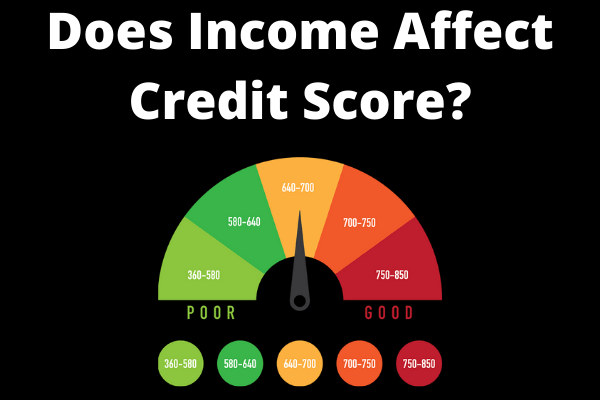Does Income Affect Credit Score? : While your income doesn’t have direct effect on your credit score, a sudden reduction or loss of earning can have an indirect impact on your score if it prevents you from paying your bills.
Your credit score is based on the information gathered in your credit reports at the three national credit bureaus. Credit report information includes history of borrowing money that can be in the form of credit card accounts and loans as well as your history of repaying these debts.
Your credit report records are detailed and extensive yet there are lots of personal data that are not included in your credit reports that cannot be taken into consideration during calculation of your credit score. Some of the things that are not included in your credit report are the following:
- Income
- Employment status
- Marital status
- Religious affiliation
- Ethnicity or race
Non-inclusion of these personal data from scoring systems and credit reports helps eliminate any possible bias among the lenders or other people who may check your credit reports.
Indirect Effect of Your Income on Your Score
Due to the importance of on-time bill payments to scoring models, you can easily see why loss of income can hurt your credit score in the end. If there is a significant drop in your income because of illness, unemployment, or some other factors and you don’t have enough funds for paying your credit and debt payments, this can put your credit score at risk. Late or missed payments and defaulting on debt can also make your credit score suffer.
Debt and Income’s Impact on Credit Approval
While reduced or low income doesn’t affect your score, still, there are several ways for to affect your ability for qualifying for credit or loans.
Even though your credit score can make you qualified for consideration for a certain credit card or loan offer, most lenders’ application process require a proof of income that can be in the form of tax return or pay stub.
Aside from that, lenders often consider your monthly income’s percentage spent on debt payments. This measurement is called debt to income ratio and is considered during evaluation of mortgage applications. To be qualified for a mortgage loan, the DTI ratio must not be more than 43% and most lenders require a DTI ratio of 36% or lower.
Factors That Affect Credit Score
If you want to build up your credit score, it is important that you understand the factors that affect and don’t affect your credit score. Different systems for credit scoring calculate scores in different ways but all of them look for behavioral patterns that reflect responsible habits for credit management. FICO Score’s creator, FICO, lists the factors below as the ones that have the most impact on credit scores:
- Credit card balances
- Bill payment history
- Credit mix
- Length of credit history
- Recent applications and new credit
Your income is not tracked in the credit report, which means that it doesn’t affect your credit scores. A steady income, to an extent, allows you to stay updated with your debt payments. To be a responsible credit user, income is essential to build and maintain healthy credit scores.






